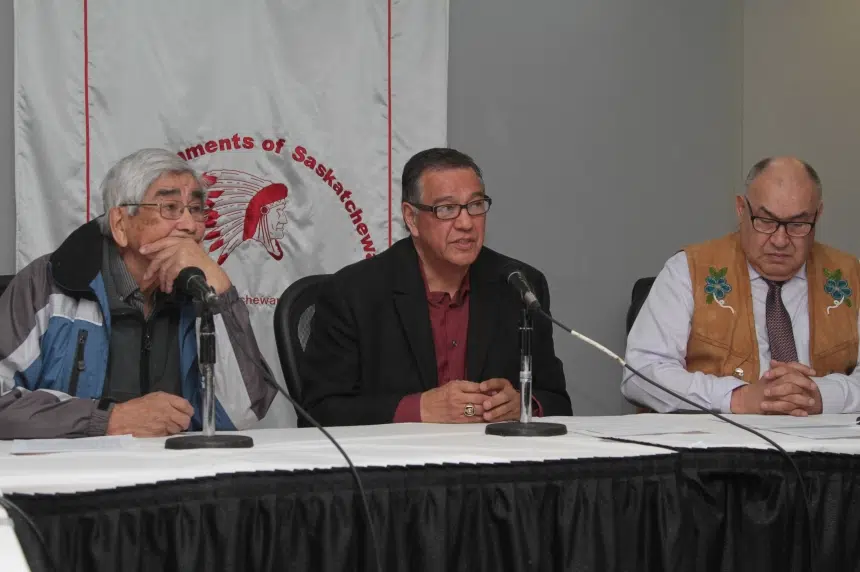The Beardy’s and Okemasis First Nation will soon know how much money the federal government owes them for wrongfully labeling the band rebels and denying them funding following the 1885 Northeast Rebellion.
Starting on Monday, a Specific Claims Tribunal will hold three days of public hearings at the Wanuskewin Heritage Centre in Saskatoon to decide how much the First Nation should be compensated after the two parties failed to reach an agreement.
Last May, the tribunal ruled Ottawa erred when following the rebellion – also known as the Riel Resistance – it labeled 14 Saskatchewan First Nations as rebels, refused to give them treaty annuities and confiscated items such as guns, ammunition, livestock, and wagons. They also imposed a pass system restricting the people from leaving the reserve without government permission and prevented them from having a chief and council until 1936.
“I’m so damn glad that we got this adjudicator rule in our favour,” chief Rick Gamble said. “We can look forward to a more comprehensive process by which federal government will maybe sit down with the First Nations in this country and address treaties through a round table.”
Gamble said the Ministry of Justice did present one compensation offer, but the First Nation’s lawyer said they were going back to a judicator and negotiate an amount plus interest.
Following next week’s hearings, the tribunal will take an unknown amount of time to decide on the exact amount of compensation.
Gamble said he is looking forward to receiving a large settlement from the government, but also recognition that treaty rights are alive in Canada.
The historic ruling in May and the eventual compensation ruling will also pave the way for the other 13 local First Nations with similar annuity claims. They include the Chakastaypasin, Little Pine, Lucky Man, Moosomin, Mosquito/Grizzling Bear’s Head/Lean Man, Muskeg Lake, One Arrow, Onion Lake, Poundmaker, Red Pheasant, Sweetgrass, Thunderchild and Young Chipewayan First Nations.
Gamble stressed the need for First Nations to jump on the opportunity to strengthen treaty rights.
“We as First Nations need to get our act together. If this door closes and we’re not ready, who are we going to blame then?”
On Wednesday, the Federation of Saskatchewan Indian Nations publicly stated its support for the First Nation’s case.











